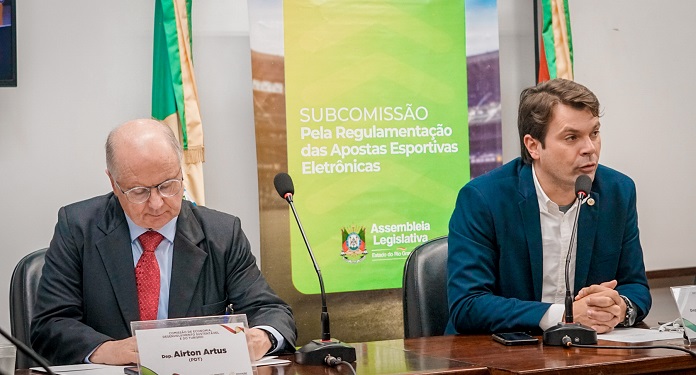Proposed and reported by deputy Marcus Vinícius de Almeida (PP), the Subcommittee for the Sports Betting Regulation of the Legislative Assembly of Rio Grande do Sul (ALRS) recently received the president of the Brazilian Institute of Legal Gaming (IJL), Magno José Santos D’Souza.
He participated in a public hearing of the working group. On the agenda of the meeting, deputies sought to understand the context of the new market in the country and the potential for revenue.
Magno José explained that the sector’s expected turnover in Brazil is approximately R$ 150 billion. The regulation of sports betting will also bring legal certainty to the market.
“Society and part of the parliamentarians need to understand that legal gambling is better than the way it is currently authorized”, said Magno José.
“By opposing legal gambling, one allies with illegality. You lose in revenue, there is no way to protect the citizen and there is no way to create public policies or even protection for the gambler”, he added.
Marcus Vinícius referred to market opportunities with regulation. “In the past, we struggled a lot to attract vehicle assemblers to Rio Grande do Sul because we knew of its revenue potential”.
“Today, we have to anticipate movements to receive the iGaming sector because the perspective is significant. They are investments, jobs and opportunities”, he added.
The parliamentarian said that state legislation needs to follow the movement of the Chamber of Deputies and, likewise, legislate in favor of the sector and bettors.
Subcommittee will hold two more meetings to prepare a report on the regulation of sports betting
Therefore, the Subcommittee will hold two more public hearings in August. It will then present its final report to the Economics Committee of the Legislative Assembly.
According to Marcus Vinícius, the report will present a suggestion of state legislation on the subject that will offer competitive differentials so that companies in the iGaming sector can establish their headquarters and bases in the soil of Rio Grande do Sul.
“We have to have a differential in relation to other poles such as São Paulo and Minas Gerais. Showing our potential and offering legal security to the sector is the path to more jobs”, concluded the parliamentarian.















